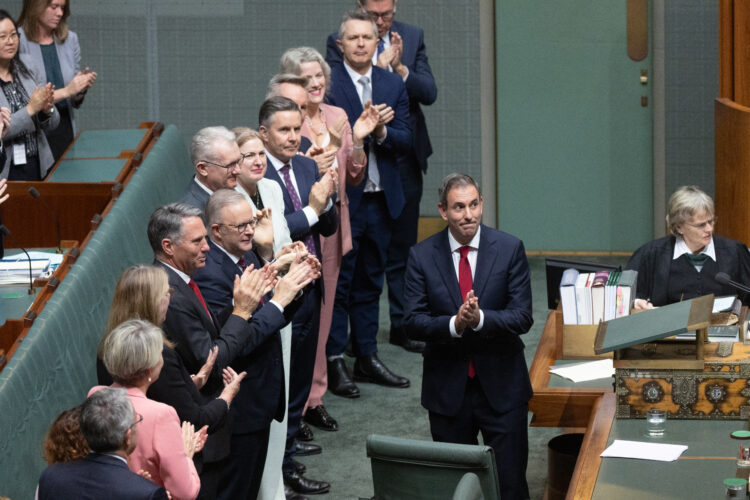AAP has taken a look at the Women’s economic statement (which looks at how women have benefited from the budget) and found that there is no serious funding for addressing domestic violence:
No to Violence chief executive Phillip Ripper said if the federal government was serious about addressing the issue, it should have shown it.
“The budget ignored the cost of men’s family violence and the cost of women and children living in fear,” he said.
“This week we saw more women dying by men’s violence. How many more will we accept and at what cost?
“The cost is immeasurable to some families, for the women and children who have lost their lives and others their health, safety and wellbeing.”
Minister for Women Katy Gallagher said women were now earning an extra $217 a week since Labor was elected in 2022.
“We’ve made women’s economic equality a key feature of the work we do when putting budgets together, they’re not an after thought,” she said.
“They’re there at the table, we’re thinking about it … and you will see continued effort in that area.”
New funding included $2.5 million in the 2025/26 financial year for emergency accommodation for women and children experiencing all forms of violence under an existing program.
Labor has since committed more than $4 billion in women’s safety and delivering the national plan to end violence against women and children since its launch three years ago.
Women will have improved access to healthcare and contraception under funding announced before the budget.
More than $134 million over four years will be allocated to increase the schedule fee for four long‑acting reversible contraception items on the Medicare Benefits Schedule.
Clinics providing specialist care to women suffering from pelvic pain and endometriosis will be given a $20.9 million boost over the next three years.
IVF treatment will be made more affordable from April this year, with some women able to get earlier access to combination therapy through the pharmaceutical benefits scheme.
